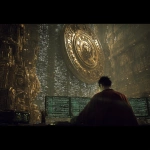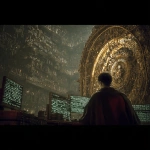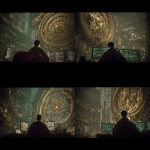Explore the Best AI Image Gallery

AI-Generated Images: Reshaping the Marketing Landscape
The marketing world is undergoing a dramatic transformation, fueled by the rise of artificial intelligence (AI). One of the most exciting and disruptive developments in this space is the emergence of AI-generated images. This technology allows marketers to create high-quality visuals quickly and efficiently, opening up a world of new possibilities for creative expression and brand storytelling.
The Potential of AI Images in Marketing
- Cost-Effective Visual Content Creation: AI image generators can significantly reduce the time and resources required to produce marketing materials. This is particularly beneficial for businesses with limited budgets or tight deadlines.
- Personalized and Targeted Content: AI algorithms can be trained on vast datasets of images and customer preferences, enabling marketers to create personalized visuals that resonate with specific target audiences.
- Enhanced Brand Identity: AI-generated images can help brands establish a consistent visual identity across all marketing channels. This consistency strengthens brand recognition and builds trust with consumers.
- Experimentation and Innovation: AI image generators empower marketers to experiment with new creative concepts and push the boundaries of visual storytelling. They can explore diverse styles, aesthetics, and ideas without being limited by traditional design constraints.
Applications in Marketing Campaigns
AI-generated images are already finding applications across various marketing campaigns:
- Social Media Content: Creating eye-catching visuals for social media posts, stories, and ads to engage audiences.
- Email Marketing: Personalizing email campaigns with relevant and visually appealing images that enhance message impact.
- Website Design: Generating unique and compelling imagery to break up text content and create an immersive user experience.
- Product Visualization: Showcasing products in different contexts and styles to help customers visualize their use and benefits.
- Advertising Campaigns: Developing innovative visual concepts for print, online, and video advertisements to capture attention and drive conversions.
Ethical Considerations
While AI-generated images offer immense potential, its crucial to address the ethical considerations associated with their use:
- Copyright and Ownership: The legal ownership of AI-generated images is a complex and evolving issue. Its important to establish clear guidelines and policies regarding copyright and usage rights.
- Bias and Representation: AI algorithms are trained on existing data, which can reflect societal biases. Its essential to ensure that AI-generated images promote diversity and inclusivity, avoiding harmful stereotypes or discriminatory representations.
- Transparency and Authenticity: Marketers should be transparent about the use of AI in creating images. Consumers have the right to know when visuals are generated by machines and make informed decisions based on that information.
Future Trends
The field of AI image generation is rapidly evolving, with ongoing advancements shaping the future of marketing:
- Increased Realism and Detail: AI models will continue to improve, producing images with even greater realism and detail, blurring the lines between human-created and machine-generated content.
- Interactive and Dynamic Images: AI will enable the creation of interactive and dynamic images that respond to user input or environmental cues, offering more immersive and engaging experiences.
- **Integration with Other Technologies:** AI image generation will become seamlessly integrated with other technologies, such as augmented reality (AR) and virtual reality (VR), creating new possibilities for visual storytelling and customer engagement.
Conclusion
AI-generated images are revolutionizing the marketing landscape, offering a powerful toolset for brands to create compelling visuals, personalize content, and enhance customer experiences. By embracing these advancements responsibly and addressing ethical considerations, marketers can harness the transformative potential of AI to drive innovation and achieve their business goals.
The future of marketing is visual, and AI will play a central role in shaping that future.



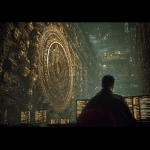






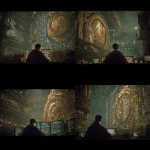


](https://images.ai-img.art/thumbnails/150/786d3898a4574da9c53e922bd2a30035084a90a9a6f5cc6bee514d0150ba3403.webp)
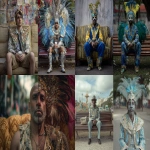
](https://images.ai-img.art/thumbnails/150/7889b264cc5c27f6b7a00af1767a689c9df2b49d36667764d8322ae0c0fed64a.webp)










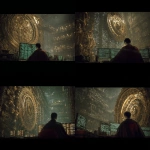








](https://images.ai-img.art/thumbnails/150/8fd5788e152269ccc7eeb4a5287499cc5f55ca46d75afc237030f50a1b60c6ca.webp)
](https://images.ai-img.art/thumbnails/150/69daab74527edc292198788487e2d0d5f1bb1aba897d85b79ff4015ea305631d.webp)
](https://images.ai-img.art/thumbnails/150/0d2c5ff24ca9024b95b5f0d1d0e673146e5dd5f31c7b3a7092322afe4a3c46eb.webp)
](https://images.ai-img.art/thumbnails/150/24ccaad8968bce75611aa4ff739695d61b7d06bd128d44cfbb3a6c46be30ed33.webp)



